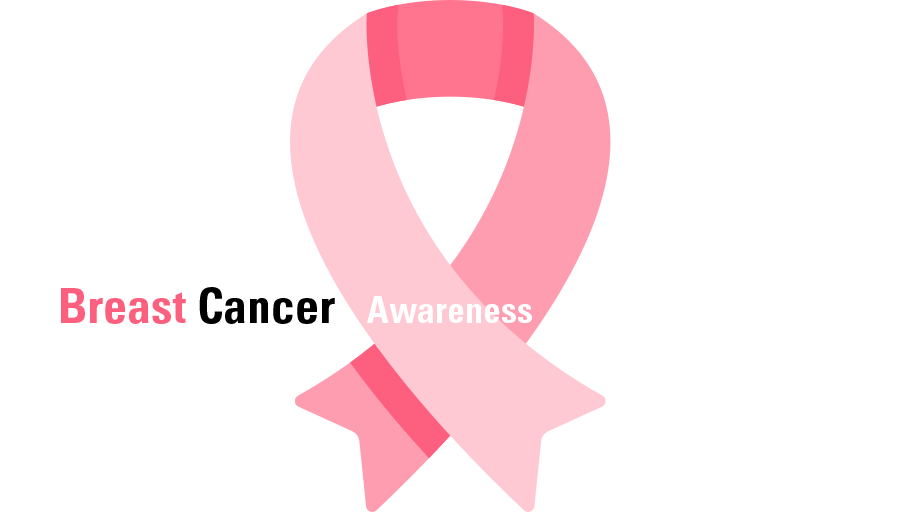written by Isabel Dycus and Karli Workman – genetic counseling students
Did you know that October is National Breast Cancer Awareness Month? This awareness month was founded in 1985 by the American Cancer Society and Imperial Chemical Industries. The goal each year is to promote early screening to fight against breast cancer.
Early detection of breast cancer can literally save lives, and that’s why we wanted to raise awareness here at UNMC. We are both first-year genetic counseling students. Have you heard of our field? Genetic counselors are healthcare professionals who support patients who are diagnosed with or are at risk for breast cancer.
What are risk factors for breast cancer?
- Sex assigned at birth—females* are more likely to develop breast cancer
- More breast tissue
- Older age (>50 years)
- Exposure to hormones (period <12yo and/or menopause >55yo)
- Personal or family history of breast cancer
How should I screen for this?
- Monthly Breast Self-Exam
- Check out THIS five-step guide to learn more
- Mammograms and Breast MRI detect abnormalities in the breast tissue
- Screening starts at age 40 for females, earlier for people who are considered high risk based on personal or family history
- Additional screening may be recommended for those who are high risk
What are the common symptoms for breast cancer?
- Changes in the size or shape of the breast
- Swelling, warmth, redness, or darkening
- Pain in the breast
- Nipple discharge (not breast milk)
- Itchy, scaly sore or rash on the nipple
- A new lump, knot, or thickening in the breast or underarm area
- Dimpling or puckering of the skin, or pulling in of nipple or other parts of the breast
When should I meet with a Genetic Counselor?
Individuals with first-degree relatives (parent, sibling, child) or second-degree relatives (grandparents, grandchildren, aunts, uncles, nephews, nieces, half-siblings) who have had breast cancer diagnosed before age 50, an aggressive form of prostate cancer, pancreatic cancer, or ovarian cancer may be eligible for genetic testing. There are genes, like BRCA1 and BRCA2, that can lead to an increased risk for these types of cancer. A change in a gene prevents it from working properly to protect against cancer and increases the risk for a person to develop specific types of cancer. Talking with a genetic counselor or your primary care provider can determine if and when testing is appropriate for you. Genetic test results can guide medical care for patients and their families—and literally save lives.
Where can I learn more?

This is awesome! Great job!!